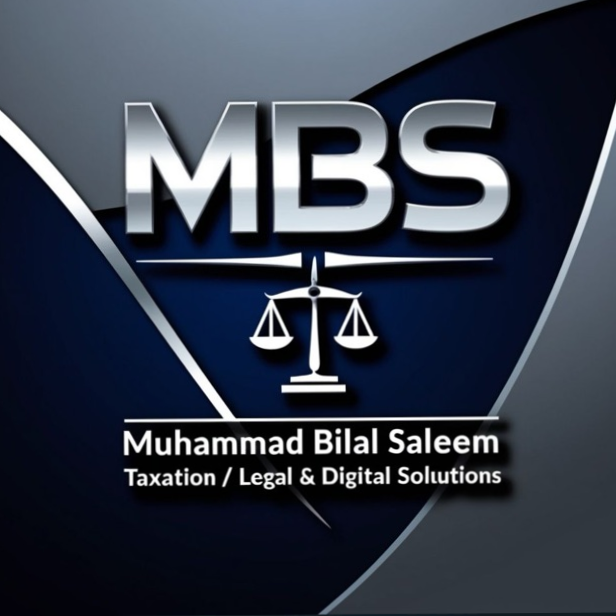
Introduction to inheritance and gift tax
Pakistan is a large and vast country, where family ties and financial relationships are very important, so it is important to know whether there is any tax on inheritance or gift property. Inheritance is the practice of transferring private property, titles, debts, privileges, rights and obligations after the death of an individual. The laws of inheritance vary across societies and change over time.
Specific taxes are imposed on such transfers, which are called “inheritance tax” or “gift tax”. Such taxes are also imposed in other parts of the world, but the system in Pakistan is a little different. There is apparently no direct inheritance tax here, but in some cases, some fees and charges are levied in an intangible manner, which are very important to understand.
What is inheritance tax?

Inheritance tax is a tax levied on the transfer of property or wealth to heirs after the death of an individual. It is usually levied on the total value of the property and its rates vary considerably in many developing and developed countries.
However, there is currently no direct “inheritance tax” in Pakistan. According to Islamic inheritance law, the property of the deceased is divided among his close relatives according to Shariah shares. The state does not impose any tax on it. However, during the transfer of property, some fees, such as stamp duty, registration fees, and land transfer costs, service charges, must be paid.
All these fees and costs, except a few, are apparently government charges, but in the eyes of the public, this is also considered a type of indirect tax.
What is gift tax?
Gift tax means that when a person gives his property, money or any valuable thing to someone else without any financial benefit, without his consent, mutual understanding or intention, then a specific tax is applicable on it. In Pakistan, the “Gift Tax Act 1963” was in force, but this law has now been repealed. In its place, alternative acts are in force.
However, this does not mean that no tax is levied on gifts now. According to the “Federal Board of Revenue, Income Tax Ordinance 2001”, some gifts are considered taxable income, especially if they are given to someone other than close relatives or if their value is very high.
The Federal Board of Revenue (FBR) keeps a special eye on such gifts that seem suspicious, or which are made with the aim of “tax avoidance”. If the gift is legally in writing, and there is a description of the value given, in accordance with the law and principles, and it is given to a close relative, then exemption from tax is possible in such cases.
Legal Framework of Inheritance and Gift Tax in Pakistan
The role of federal and provincial laws
The tax system in Pakistan operates at two levels: federal and provincial. After the 18th Constitutional Amendment, many powers were transferred to the provinces, including property-related taxes. Parliament can legislate on taxes only on those matters that are included in the Federal Legislative List (FLL) and are included in the Fourth Schedule to the Constitution.
While Parliament has broad legislative power over general types of taxes, some matters that also fall within the jurisdiction of the provincial assemblies, including agricultural tax and tax on immovable property and taxes other than sales tax on services.
For example, charges such as service charges, registration fees, stamp duty, and capital value tax now fall under the jurisdiction of the provincial governments, and each province implements them on its own. There are significant differences in these laws between Punjab, Sindh, Balochistan, and Khyber Pakhtunkhwa.
On the other hand, the laws and monitoring of gifts are vested in the federal government, the Federal Board of Revenue (FBR), in addition to the Parliament. This is why if any cash or property is gifted to someone, the FBR can bring it under the purview of taxation—especially if it is given to someone other than relatives.
Related laws and amendments
Important laws related to inheritance and gift in Pakistan:
Income Tax Ordinance 2001 – Under this law, gifts can be considered as income.
Transfer of Property Act 1882 – The main law related to the legal transfer of property under this law.
Muslim Family Laws Ordinance 1961 – Details of Islamic method of inheritance under this law.
Civil Procedure Code (CPC) – Outlines the legal cases of inheritance and the procedure of succession under this law.
Provincial Stamp Acts – Charges imposed on registration and transfer in different provinces under this law.
All these laws together determine what will be applicable to the transfer of property or money, and where taxes or fees are required to be paid. And where they are not required.
Conclusion: The reality of inheritance and gift tax in Pakistan
Inheritance and gift tax laws in Pakistan are somewhat simple but also complex in many respects. Under the principles of Sharia, there is no direct tax on inheritance, but there are certain expenses incurred in the transfer of property, registration, service charges and other legal proceedings, which take the form of indirect taxes. Similarly, gifts are ostensibly considered a symbol of love and relationship, but they are considered a separate category in tax laws.
It is essential to have legal documentation, transparency, and availability of records. This not only provides legal protection but also protects against any possible legal complications or tax objections, or other issues in the future. If property or cash is transferred to close relatives, then in most cases tax exemption is obtained, but gifts given to distant relatives or unrelated persons other than close relatives must be given full legal explanation.
Therefore, the public should not consider the process of transferring or gifting property as merely traditional but should act with complete legal advice so as to avoid any legal or financial hurdles in the future.
FAQs
Is there really no tax on inheritance in Pakistan?
Yes, under Islamic inheritance principles, direct inheritance tax is not applicable in Pakistan, but registration fees, stamp duty, and other charges may apply during the transfer of property.




